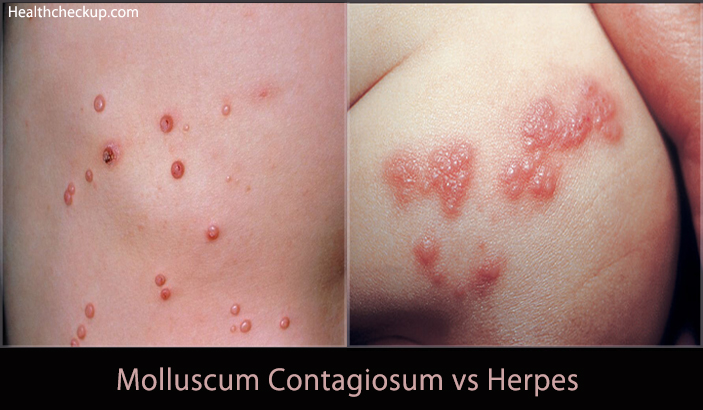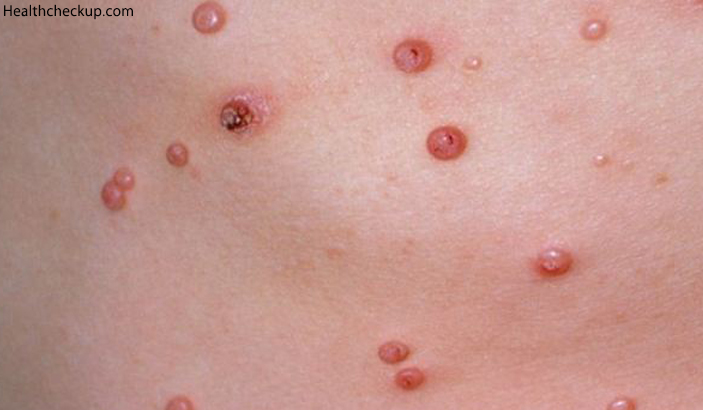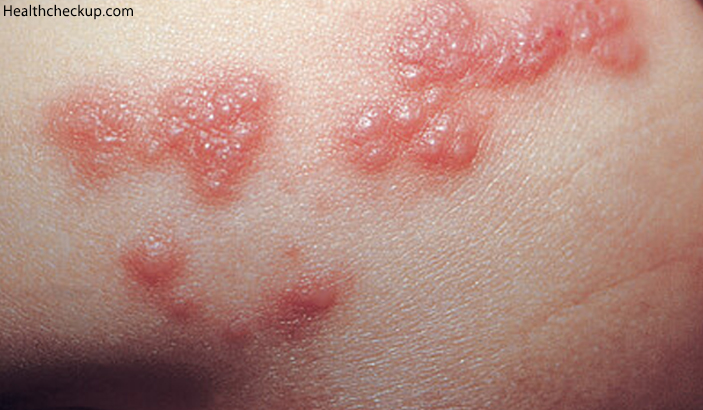What is Molluscum Contagiosum?
It is a viral infection of the skin. The virus molluscum contagiosum produces benign raised lesions. The lesions may be single or multiple, rounded, pink, waxy papules. Types I-IV have been identified. Virus may spread along a line of minor skin trauma. It may transmit directly through skin contact often in children sharing a bath and athletes sharing equipment. The disease presents with distinct patterns among the children, adults who are immunocompetent and patients who are immunocompromised.
Molluscum Contagiosum is most common in children who have been in direct skin to skin contact or indirect skin contact. Lesions typically occur on chest, arms, trunk, legs, and face. In adults, it’s mostly seen as a sexually transmitted disease. In healthy adults, it is generally self-limited disease. And they tend to have few lesions limited to the perineum, genitalia.
Atypical molluscum contagiosum in immunodeficient people i.e patients suffering from AIDS or who have the significant immunocompromised system.
What is Herpes Disease?
Herpes simplex more commonly known as herpes are two types, oral herpes and genital herpes. Herpes type I causes sores around the mouth and lips. Where as the other type causes sores around the genitals or rectum.
Oral herpes is transmitted through oral secretions. It can spread through kissing, or sharing a toothbrush.
Genital herpes is caused by an infection with the herpes simplex virus (HSV). An individual can get type II herpes only during sexual contact with some who has herpes simplex virus type II. It is important that pregnant women talk with their doctor as genital herpes may affect the baby during birth. Symptoms are typical blisters around affected areas which on bursting leave tender sores.
Molluscum Contagiosum Vs Herpes Symptoms
How to tell one apart from another from symptoms? A herpes breakout will sometimes (but not always) develop into a cut, sore, blister or lesion. Herpes symptoms are not always easy to identify because they can vary so much from person to person and do not always appear as expected. In fact, some people show little to no symptoms at all.
Unlike herpes, molluscum produces lesions that are raised, with a central dimple.
Molluscum Contagiosum Vs Herpes – How They Differ in Treatment?
Treatment of Molluscum Contagiosum
The prognosis in Molluscum Contagiosum is generally excellent because the disease is self limiting. Spontaneous resolution generally occurs in healthy immunocompetent individuals within a span of around 18 months. There is the cosmetic problem as lesions can be disfiguring and produce anxiety in patient and family.
Molluscum Contagiosum not going away?
However, in patients who are severely immunocompromised or have a weakened immune system, this isn’t the case where it may not be a self limiting disease.
Is Molluscum Contagiosum Contagious?
Molluscum contagiosum is contagious and spreads easily by sharing towels and clothing. The virus also spreads by skin to skin contact.
Can my Child go to School with Molluscum Contagiosum?
It is infectious while active. However, affected children and adults should continue to attend daycare, school, sports activities and work.
They have to follow these precautions until all the bumps are gone to reduce spread:
- Keep hands clean
- Avoid scratching or shaving
- Cover all visible lesions with clothing or watertight bandages
- Dispose of used bandages
- Do not share towels, clothing or other personal effects
- Adults should practice safe sex or abstinence
A molluscum contagiosum infection will usually go away on its own if your immune system is healthy. The infection can be more persistent and last even longer for people with immune system problems.
Treatment of Herpes Simplex
Although there is no cure for herpes, treatments can relieve the symptoms. Medication can decrease the pain related to an outbreak and can shorten healing time. They can also decrease the total number of outbreaks. Drugs including Famvir, Zovirax, and Valtrex are among the drugs used to treat the symptoms of herpes. Warm baths may relieve the pain associated with genital sores.
Medically Reviewed By











